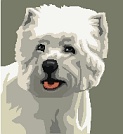


If your dog or cat has a prolonged or recurring period of digestive upset, or suffers from excessive itchy skin, is constantly licking paws red raw or has hot spots or balding patches due to excessive grooming you need to take veterinary advice as there might be an underlying medical condition, or parasites that are the cause of the problem - don't second guess because the health of your pet is at stake here!
Having said all that, and assuming that there is no underlying medical condition then the suggestion is probably going to be made that at some point of treatment your pet goes onto a veterinary prescription diet alongside maybe some medication to calm down the condition. That's good, because we don't like to see our pets suffer.
So you embrace the new regime taking home a bag of kibble and some cans of wet food. Once home, you donate the old food to a local shelter and start the new diet immediately.
There are two problems here with this system. The first being the sudden change in diet can actually cause diarrhea in sensitive pets and the second being that you did not bother to discard the old treats, chews and biscuits!
The second is that you might have overlooked an obvious solution - you might be not only have been feeding the wrong food but also feeding too much!
Excess nutrition can make an existing problem worse. There's a reason why a couple of companies recommend only feeding 10g/kg body weight of dry food. They know people overfeed and therefore by the time they've added the extra 50% without measuring, they probably have the daily amount about right!
So try feeding 10-12g/kg body weight for a while, and weigh it out!
Didn't cure the problem totally?
So are we faced with a life sentence of buying expensive veterinary only foods?
Well, there may be alternatives which offer a cheaper alternative and the same outcome, although as with humans, where symptoms persist simply must take professional advice.
Several companies produce foods which are aimed at the growing numbers of pets with food intolerance and allergies. These seem to work on a variety of different angles.
If you decide to change your pet's diet, veterinarians recommend you do it slowly. Rapid changes in diet can cause upset stomach and other problems. When changing pet food, start by mixing some of the new food in with your pet's regular food. Over the next three to five days, gradually increase the amount of new pet food. After this transition, your pet should be more adjusted to the new food.
Some nutritionists recommend putting a dog onto a home cooked diet for a while to let the body recover, and this could be a simple mix of cooked egg and well cooked rice, or substitute egg for cooked white fish. Try this for a week or so, and if things start to improve gradually introduce the new complete food.
An elimination diet may help to highlight the cause of any underlying intolerance to a food ingredient - though this can be a lengthy process!